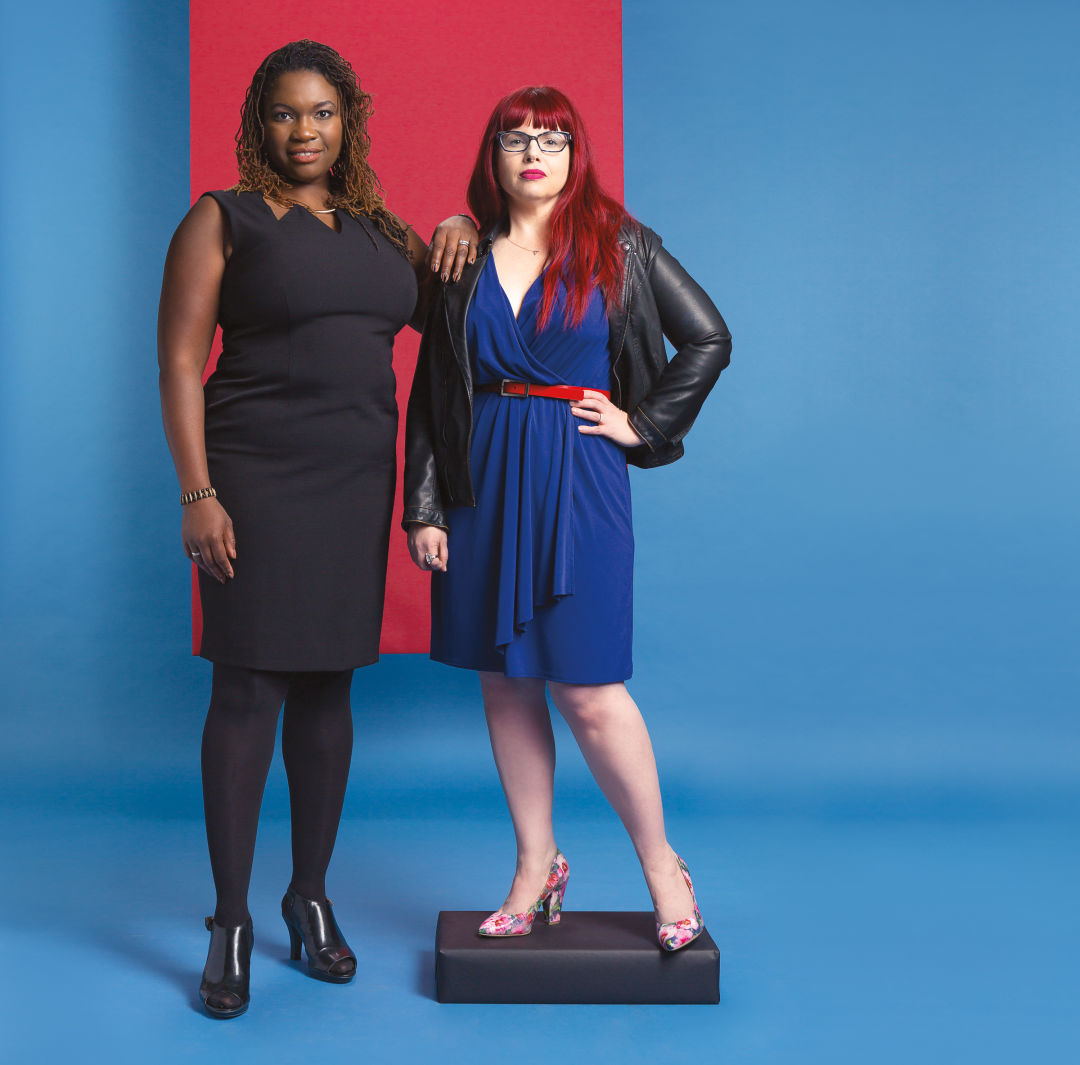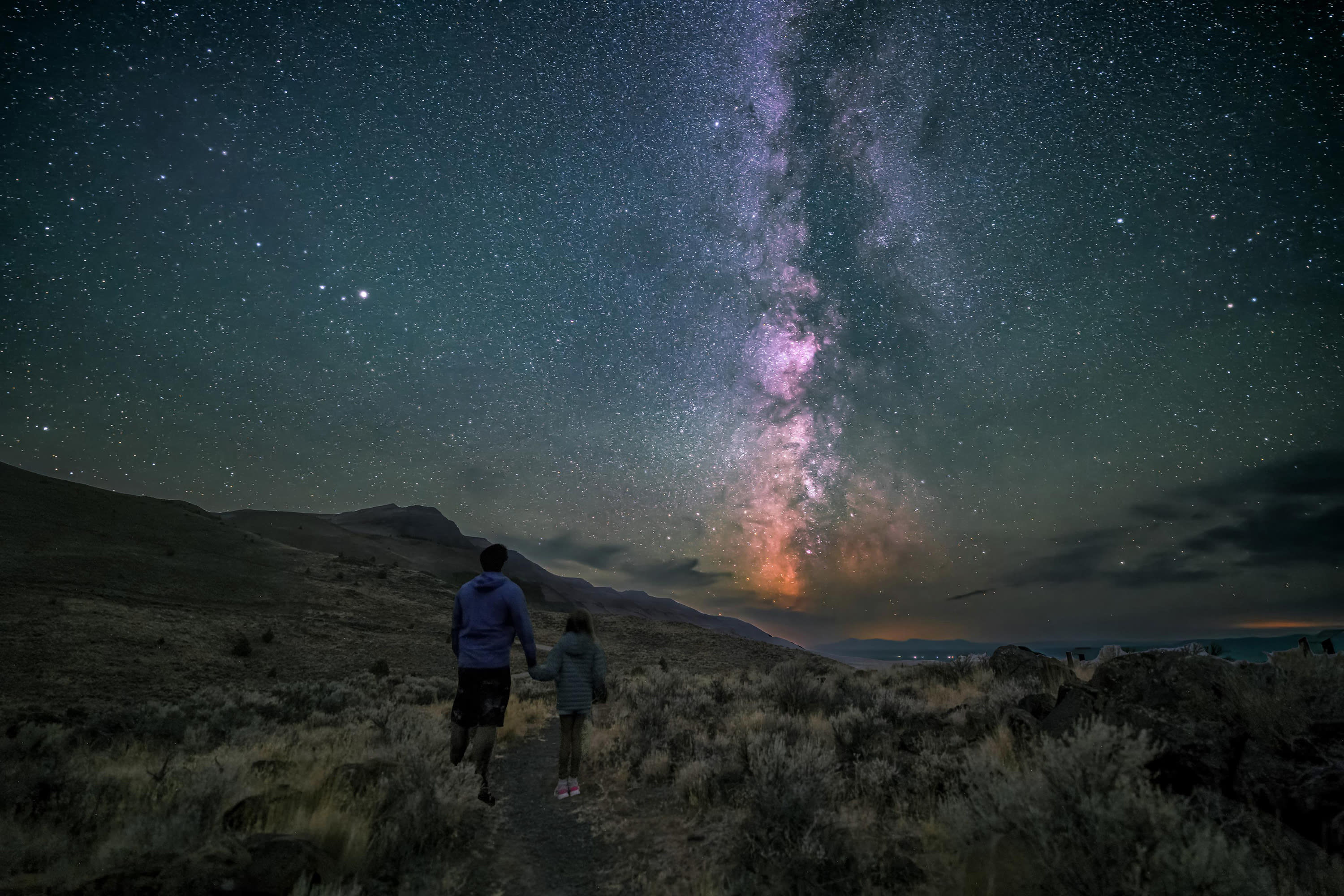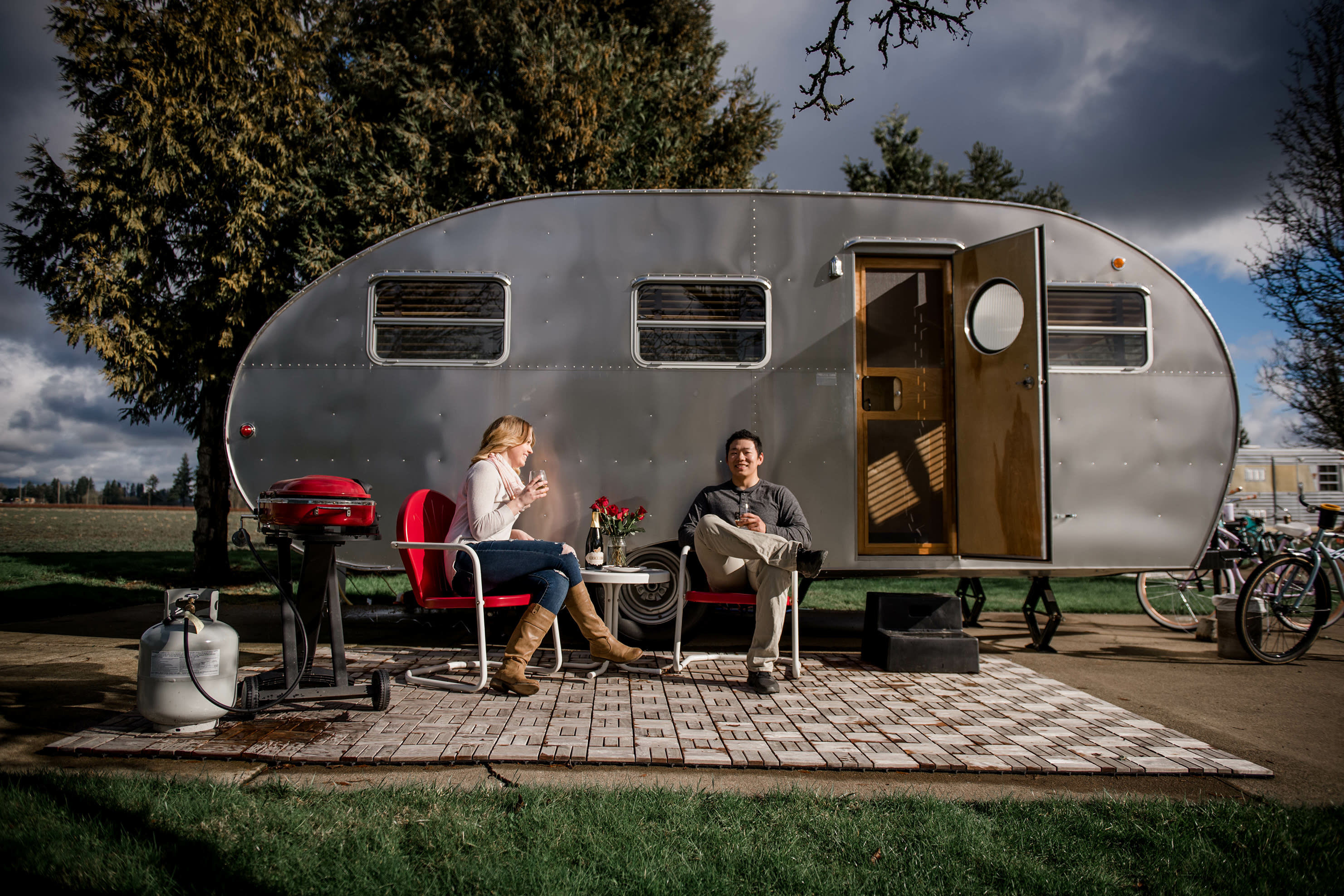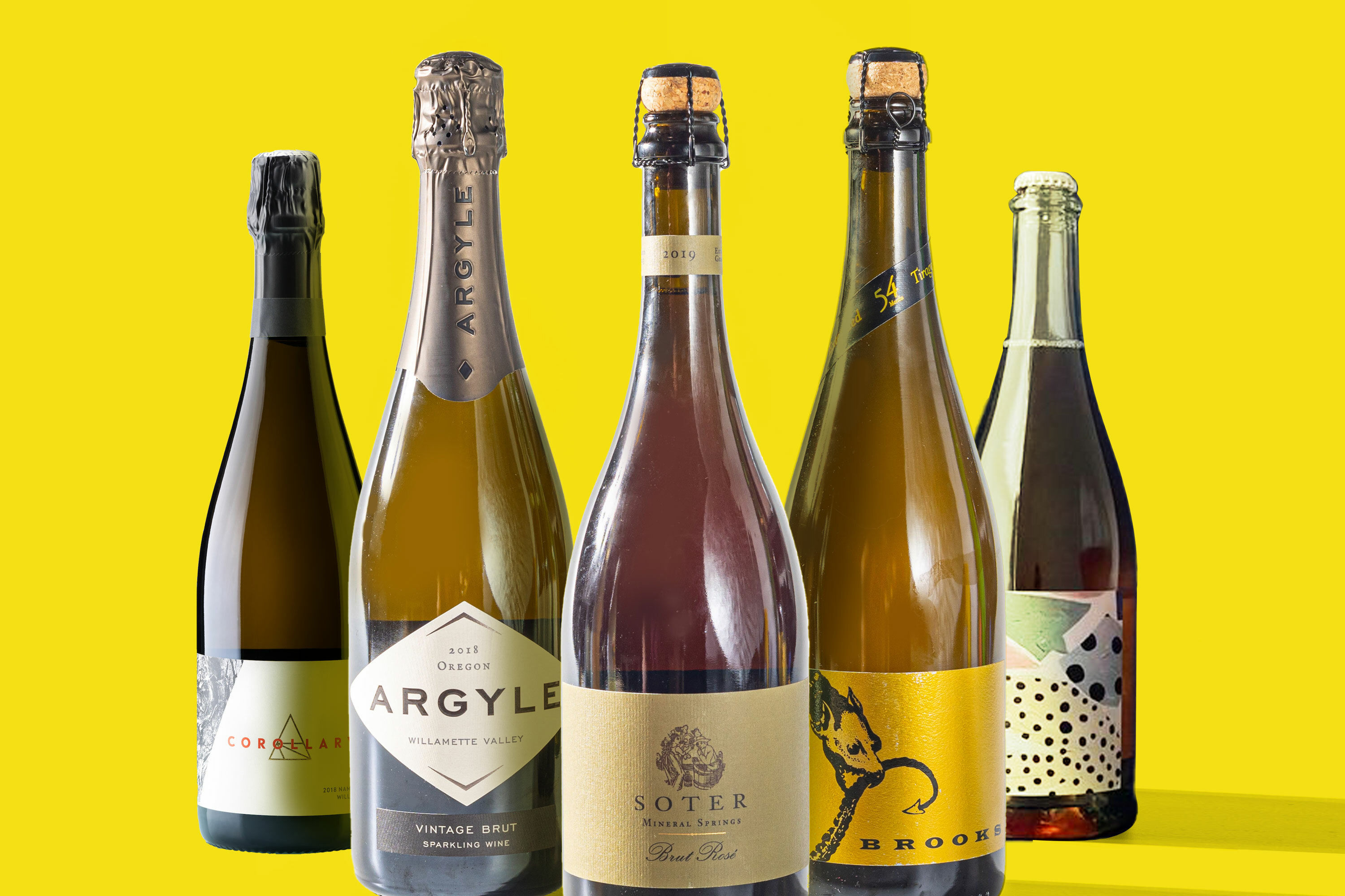Two Fierce Oregon Women Who Insist on Defining Themselves

Image: Nicolle Clemetson
Portland native Nkenge Harmon Johnson is a longtime Capitol Hill consultant, a civil rights activist, and currently the executive director of the Urban League of Portland. Kelly Sue DeConnick, an Eisner Award–winning comics writer for Marvel, Image, and Dark Horse, has penned such series as Captain Marvel. They’re proud, and they’re loud.
NKENGE: I’m sure that California women have a perception of themselves. And, so do women from Virginia and DC. So I don’t want to be too high-handed about this. But, being from Oregon, you don’t have to be one thing. You can be tough and strong and smart. You can both play soccer and get sweaty and dirty and be glamorous. You can be a scientist and a mommy.
KELLY SUE: Yeah!
NKENGE: Where are you from?
KELLY SUE: I’m from “Air Force.” We moved around a lot. I’ve been here six years now. And my husband and I, when we got here, were like, oh, we’ve found our place. This is our ecosystem, you know. But I don’t want to pretend I am an Oregon woman. I don’t know if I’ve earned it. I mean, I have tattoos and the nose ring, so I’m trying.
NKENGE: It’s a thing though, isn’t it? We think of ourselves as being different, because Oregon is different.
KELLY SUE: There’s a real spirit of the individual here. It’s a confederacy of eccentrics. I love that. I feel unjudged.
NKENGE: Lately I’m seeing myself as someone that young people might look to. Which is weird, because I don’t quite think I’m old enough to be one of those people yet. I mean, I’m a wife. I’m a sister. I’m an aunt [and godmother] to two of the most amazing young women in the world. I’m trying to become the person I want to be. I slaughtered our turkey for Thanksgiving this year. I cooked that sucker myself, and it was big.
KELLY SUE: That is hard-core.
NKENGE: My friends tease me because I will complain how I cannot keep a manicure. One cannot do home improvement and also have nice nails. But I think one should be able to have both things.
KELLY SUE: I have reached the age where I don’t get carded anymore, and there’s a lot of ma’ams happening. There’s a disappearing of women as we age in our culture. Where we stop seeing ourselves in popular culture. These are not stories that we like to tell. On the one hand, I’ve aged to a comfort level where I don’t need everything to be about me. And that’s good. On the other hand, I have a lot to contribute. And my voice will be heard. I mean this in a really pretentious kind of “royal we” sort of way: all of my sisters in that age window, we get pushed out.
NKENGE: I don’t think it’s pretentious at all. I’m a black woman from Oregon. I have strong opinions. My name’s Nkenge. Look at me. I don’t blend in that well, even if I wanted to. But if I don’t use that voice, man, I’m letting down all kinds of folks. And the next time you see someone who looks like me, you’ll expect her to be quiet and mild or meek. And I can’t do that to whoever she is.
KELLY SUE: And you can’t do that to you.
NKENGE: Working in politics, it angers me how staid it is. It’s a white guy’s playground. And, oh my goodness, when we elect 25 percent women? We’re stoked about that. Even though we’re, what, 51 percent of the planet?
KELLY SUE: We should run the show! Comics are a male-dominated industry. But every industry is a male-dominated industry. All of them. Even the ones that aren’t, numerically, like hairdressers. Most hairdressers are women, but the top earners are all men.
NKENGE: Cooks versus chefs, right?
KELLY SUE: Exactly. It’s all male-dominated industries, so I might as well do what I love.
NKENGE: I didn’t get chased in kissing tag. I was cool with that. I was fast. [Laughs.] I didn’t get it. If I’d have gotten it then it probably hurt my feelings a lot. But thankfully, I was really oblivious. But I remember seeing Grace Jones as a little girl and thinking, yeah, I’m on that. Her skin is dark. I’ve never wanted to be lighter than I am, which is also a gift, because having dark skin, oh my goodness, you can’t be pretty. But Grace is gorgeous. That’s my imprint.
KELLY SUE: I think the visceral answer for me would be Tina Turner.
NKENGE: She’s compact and fierce, too.
KELLY SUE: She is. I think we’re both bulldogs. I read her book a number of years ago. She is so strong and so centered. Even in high heels you couldn’t knock her over. She is an artist. And a creator. Someone who brings life and love and spirit into the world.
NKENGE: She’s carving out her space in the world. I wore braids when I moved to Tallahassee [for college]. The humidity is just the worst, so doing my hair all the time, not my thing. I had an internship with a company, and the internship coordinator says, you can’t go with your hair looking like that. You gotta do something with that hair. I was devastated. But I kept my braids. Right now, this hair. I wore this hair working for the White House. I wore it working for the Senate, for the governor. I will not take direction from you about what you think I should look like. I don’t have to do that.
KELLY SUE: Fuck those people! [Chuckles.] I am a person who has made my life in the comic book industry. And the comic book industry is overwhelmingly dominated by stories of heroes, and everything that our heroes stand for are what feminism stands for. You know, Captain America is about as feminist as you get. This notion that you always look out for the rights of the least among us. That we ought to give people the respect to define themselves. To inhabit their humanity in their own way. That no one else gets to define me or mine, is the heart of my feminism. You will pry the word out of my cold, dead fucking hand.
NKENGE: Being a feminist, it really is about self-determination. It’s not for me to tell any other woman what it means for her to be a woman. There are not six boxes that you have to fit into.
KELLY SUE: With a male character in a screenplay, you write their name, their age, and one line to define them. With the women, there are always questions about who the woman loves or is loved by in order to understand who she is. I believe in love. I believe in love as as close to a god as I understand. But you are not defined by your relationships more than you are defined by yourself.




